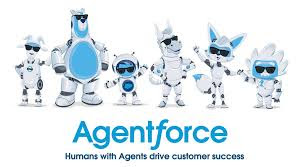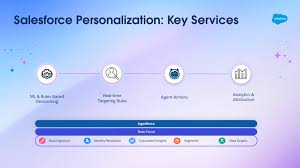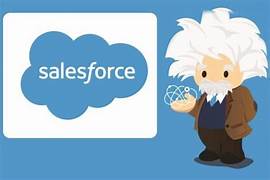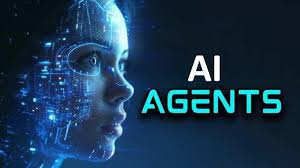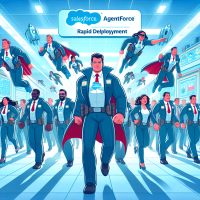Salesforce Achieves FedRAMP High Authorization for Agentforce
Salesforce Achieves FedRAMP High Authorization for Agentforce, Unlocking $1 Trillion in Public Sector Efficiency Transforming Government Services with AI-Powered Digital Labor Public sector organizations today face a critical challenge: 90% of constituent issues still require manual resolution, leading to delays in vital services like veteran benefits, infrastructure grants, and emergency response. This inefficiency costs the U.S. federal government up to $1 trillion in lost productivity—while citizens endure unnecessary friction in accessing support. To address this, Salesforce has secured FedRAMP High authorization for Agentforce, the autonomous AI layer of the Salesforce Platform, alongside Data Cloud, Marketing Cloud, and Tableau Next. Now, federal agencies can deploy secure, AI-powered digital workers to instantly assist constituents, streamline operations, and free public servants to focus on high-impact missions. The Public Sector AI Opportunity With 87% of Americans open to using AI agents for government services, agencies have an unprecedented chance to: ✅ Enhance Decision-Making ✅ Deliver 24/7 Personalized Support ✅ Automate Administrative Burdens “What if every constituent interaction was immediate, informed, and empathetic? AI agents make this possible,” said Nasi Jafari, EVP & GM of Public Sector at Salesforce. “With digital labor, agencies can exponentially improve service speed, quality, and accessibility.” FedRAMP High-Authorized Innovations Now Available for U.S. Federal Agencies Recently Added FedRAMP High Solutions Why Salesforce Stands Apart Unlike standalone AI tools, Agentforce embeds trust and compliance into every interaction: 🔒 Built-In Guardrails 🤖 Deep Platform Integration 📊 Seamless Data Unification Real-World Impact: Wisconsin’s AI-Powered Economic Development The Wisconsin Economic Development Corporation (WEDC) is leveraging Salesforce and Agentforce to: “This isn’t just about technology—it’s about real impact on people’s lives,” said Joshua Robbins, SVP at WEDC. “AI helps us act faster and smarter for Wisconsin’s communities.” The Bottom Line With AI agents now FedRAMP High-authorized, the U.S. public sector can: The future of government isn’t just automated—it’s intelligent, unified, and human-centered. Like Related Posts Salesforce OEM AppExchange Expanding its reach beyond CRM, Salesforce.com has launched a new service called AppExchange OEM Edition, aimed at non-CRM service providers. Read more The Salesforce Story In Marc Benioff’s own words How did salesforce.com grow from a start up in a rented apartment into the world’s Read more Salesforce Jigsaw Salesforce.com, a prominent figure in cloud computing, has finalized a deal to acquire Jigsaw, a wiki-style business contact database, for Read more Service Cloud with AI-Driven Intelligence Salesforce Enhances Service Cloud with AI-Driven Intelligence Engine Data science and analytics are rapidly becoming standard features in enterprise applications, Read more

